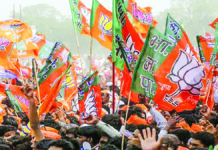NEW DELHI: Despite layers of oversight in place, major corporate frauds have continued to slip through the cracks—exposing a recurring issue with the way statutory audits are being conducted. Time and again, financial statements riddled with manipulation have been signed off without question. And the institutions tasked with catching those signs early have either been caught looking the other way or simply missing them.
Over the last two decades, global giants like PricewaterhouseCoopers (PwC), Deloitte, Klynveld Peat Marwick Goerdeler (KPMG), and Ernst & Young (EY)—along with their Indian counterparts—have failed to flag several of the country’s most significant financial scandals. They either missed clear signals or gave clean audit reports to companies that were later found to have committed serious accounting fraud, fund diversion, or worse.
Satyam Computers is perhaps the most well-known example. The company, once a star of India’s IT sector, collapsed after its founder admitted to inflating revenues and falsifying accounts by over Rs 1,700 crore. PwC, the auditor at the time, had signed off on the books without raising red flags. It wasn’t until 2009 that the fraud came to light, and by then the damage was long done. The Securities and Exchange Board of India (SEBI) barred PwC from auditing listed companies for two years in 2018. Global Trust Bank, another case from earlier in 2003, also saw PwC (via Lovelock & Lewis) failing to flag irregularities—resulting in bans from financial auditing.
The others don’t escape scrutiny either. In the Infrastructure Leasing & Financial Services (IL&FS) default, one of the country’s biggest financial meltdowns, Deloitte was the statutory auditor for several group companies, but didn’t flag growing liabilities. The company continued to get clean audits even as its debt piled up. EY and Deloitte also featured in the National Stock Exchange (NSE) co-location scandal, where brokerage firms allegedly got unfair access to trading systems. Their audits didn’t catch what regulators later found deeply problematic.
KPMG-linked BSR & Associates came under fire in 2023 for its role in auditing Coffee Day Enterprises. The National Financial Reporting Authority (NFRA) fined the firm Rs 10 crore and barred two partners—Aravind Maiya and Amit Somani—for 10 and 5 years, respectively. The audit, conducted in financial year 2018-19 (FY19), failed to raise questions even when significant intercompany loans and circular transactions were clearly present. NFRA’s formal order came in August 2024.
Failures aren’t confined to global networks. Indian firms, too, have left a trail of questionable sign-offs.
Take ABG Shipyard. The company allegedly defrauded banks of over Rs 22,000 crore. Its auditor, Nisar & Kumar, didn’t report misuse of funds or shady related-party transactions. It took a forensic review by Ernst & Young in 2019 to finally unravel the whole mess.
In Dewan Housing Finance Corporation Limited (DHFL)’s case, where the fraud is pegged at Rs 34,000 crore, auditors Krishna Bihari Chaturvedi and Kashinath Chaturvedi failed to detect glaring misstatements. NFRA imposed a Rs 1 lakh fine on each and barred them from practice for a year in a June 2024 order.
For Coffee Day’s financial year 2019-20 (FY20) audit, Venkatesh & Co., replaced BSR but failed in a different way. The firm did not even obtain a no-objection certificate (NOC) from the previous auditor, breaching Institute of Chartered Accountants of India (ICAI) norms. It also overlooked red flags despite being aware of an investigative report outlining fund diversion. NFRA’s order, dated 10 October 2024, fined the firm Rs 2 crore and barred two partners for up to 10 years.
Ricoh India’s downfall also had auditors at its centre. From 2012 to 2015, Sahni Natarajan & Bahl (SNB) certified financials that later turned out to be filled with manipulated revenues and unrecorded liabilities. After they resigned, BSR & Co. stepped in, but they too couldn’t fully uncover what later investigations showed: losses exceeding Rs 1,100 crore. SEBI held Ricoh executives responsible but the audit trail raised troubling questions about both firms’ conduct.
Then came the Punjab National Bank (PNB) scam. It involved over Rs 13,000 crore in fraudulent Letters of Undertaking (LoUs) issued by rogue employees to Nirav Modi-linked entities. While no Big Four was involved, what stands out is that this scam operated beneath multiple layers of audit—internal audits, statutory audits, concurrent audits, and even Reserve Bank of India (RBI) inspections—yet went unnoticed. The real-time integration between the SWIFT (Society for Worldwide Interbank Financial Telecommunication) messaging system and the bank’s core banking systems was missing, and so were any red flags.
Kingfisher Airlines is another familiar name. The company defaulted on over Rs 9,000 crore in loans, while its auditor—BK Ramadhyani & Co. LLP—signed off on statements that kept calling it a going concern. Fund diversion, mounting losses, and shell companies tied to the promoter? None of that made it into the audits. In 2019, the Serious Fraud Investigation Office (SFIO) called for the prosecution of the firm, and ICAI began disciplinary action, but no permanent penalty has followed.
Jet Airways, too, followed a disturbingly similar pattern. Its finances looked stable on paper, but the company collapsed under a Rs 9,000 crore loan burden. The same audit firm—BK Ramadhyani & Co.—certified Jet’s accounts without flagging unusual transactions or inflated expenses. A forensic audit by Ernst & Young later found Rs 3,300 crore in suspect payments, many linked to entities connected to Naresh Goyal’s family. This led to a First Information Report (FIR) filed by the Central Bureau of Investigation (CBI) in 2023. SFIO and ICAI probes are still open.
Each of these cases—Satyam, IL&FS, DHFL, Ricoh, Coffee Day, ABG Shipyard, Kingfisher, Jet Airways, and even Punjab National Bank—shows a pattern: audits signed without scepticism, irregularities left unquestioned, and, when exposed, consequences that came too late.
Clean audit reports were relied on by banks, regulators, and investors. When those reports fail, trust in the system collapses. And while some firms and partners have been penalized, others continue with little consequence. The assumption that an audit is a stamp of integrity is clearly under strain. If the very watchdogs miss the bark—or choose not to hear it—it’s not just companies that fail. The whole architecture of oversight begins to look hollow.








